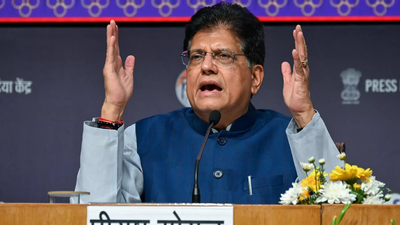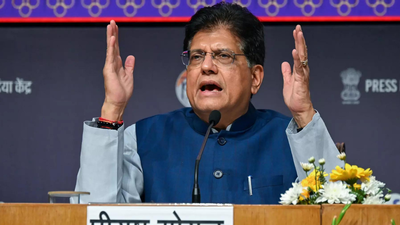India-EU FTA: Talks gain momentum ahead of Piyush Goyal’s Brussels visit; negotiations target resolution of ‘outstanding issues’

Union commerce and industry minister Piyush Goyal on Wednesday held discussions with EU Trade Commissioner Maros Sefcovic on outstanding issues regarding the proposed India-EU free trade agreement (FTA). The engagement comes ahead of Goyal’s scheduled visit to Brussels next week aimed at boosting ongoing negotiations.Goyal described the meeting on X as a “productive engagement focused on the positive resolution of the outstanding issues with respect to the India-EU FTA” and highlighted the “shared commitment on both sides towards redefining the relationship”. Sefcovic had earlier posted that he was “glad to have reconnected” with the minister, emphasising the goal to elevate the EU-India trade and investment relationship.The meeting follows the conclusion of the 14th round of talks between India and the EU from October 6 to 10. Commerce secretary Rajesh Agrawal also held talks with European Commission director general for trade Sabine Weyand in Brussels. Both sides aim to conclude negotiations by December, as per news agency PTI.India and the EU resumed comprehensive FTA negotiations, along with agreements on investment protection and geographical indications, in June 2022 after an eight-year pause. Previous talks were stalled in 2013 over disagreements on market access.India’s bilateral trade with the EU reached $136.53 billion in 2024-25, with exports worth $75.85 billion and imports at $60.68 billion, making the EU India’s largest trading partner for goods. The EU accounts for about 17 per cent of India’s total exports, while exports from the bloc to India form roughly 9 per cent of its overseas shipments.Key negotiation points include duty cuts in automobiles and medical devices, tax reductions on products like wine, spirits, meat, and poultry, and a robust intellectual property regime. Successful completion of the pact could enhance the competitiveness of Indian exports such as ready-made garments, pharmaceuticals, steel, petroleum products and electrical machinery.As per PTI, the trade negotiations cover 23 chapters, including trade in goods and services, investment, trade remedies, rules of origin, customs and trade facilitation, competition, government procurement, dispute settlement, intellectual property rights, geographical indications, and sustainable development.






